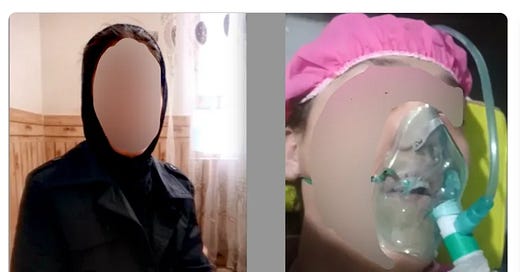Editor’s Note: Hello, Zmoong Andiwallan (Our People). Below is a heartbreaking story from an Afghan friend whose sister & The Afghan American Veterans Alliance are trying to rescue them. There are options to contribute below. This is a tough case that will take years. We could use all the help we can get.
Two months ago, my sister was found in a hosp…
Keep reading with a 7-day free trial
Subscribe to Grumpy Combat Veteran to keep reading this post and get 7 days of free access to the full post archives.



